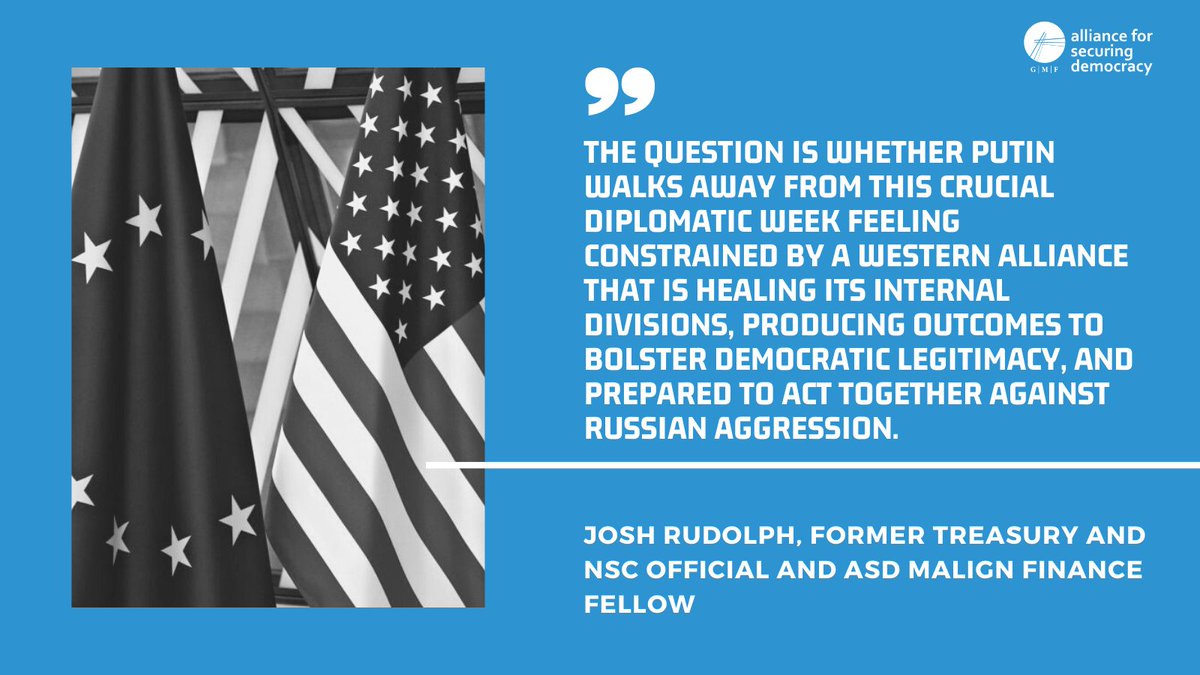
President Biden’s trip to showcase democracies' ability to meet challenges and deter threats culminates with a one-on-one meeting with Putin on Wednesday. What can Biden hope to achieve in this sit down? ASD experts weigh in.
securingdemocracy.gmfus.org/what-to-watch-…
securingdemocracy.gmfus.org/what-to-watch-…
"Can the two presidents actually put aside a laundry list of deep grievances to move the needle on tackling climate change? It may be difficult to even get that far on the meeting’s agenda," Deputy Director David Salvo writes. 

More than a dozen significant cyber incidents have been linked to Russia-based groups in the past 6 months. "It is obvious that Putin has no intention of stifling a growing segment of the Russian economy that is both highly-skilled and highly-profitable," @TypeMRT says. 

"President Biden will need to hold President Putin accountable for Russia’s attacks on the U.S. and its allies, demand a return to human rights, and chart the consequences—including economic measures—if Russia maintains or accelerates its current path," @kristineberz argues. 

Biden’s time in Europe will be key to showing that democracies can work together to respond to autocracies, @JoshRudes explains. 

"Russia’s state-backed news outlets have been relentless in building an ideological challenge for European and U.S. citizens through spreading narratives undermining trust in their democracies," @NKovalcikova writes. 

"The Kremlin will continue to attack American democracy as long as it feels it can get away with it," @davidalanlevine warns. 

Read ASD experts' full analysis of the upcoming Biden-Putin meeting 👇
securingdemocracy.gmfus.org/what-to-watch-…
securingdemocracy.gmfus.org/what-to-watch-…
• • •
Missing some Tweet in this thread? You can try to
force a refresh








